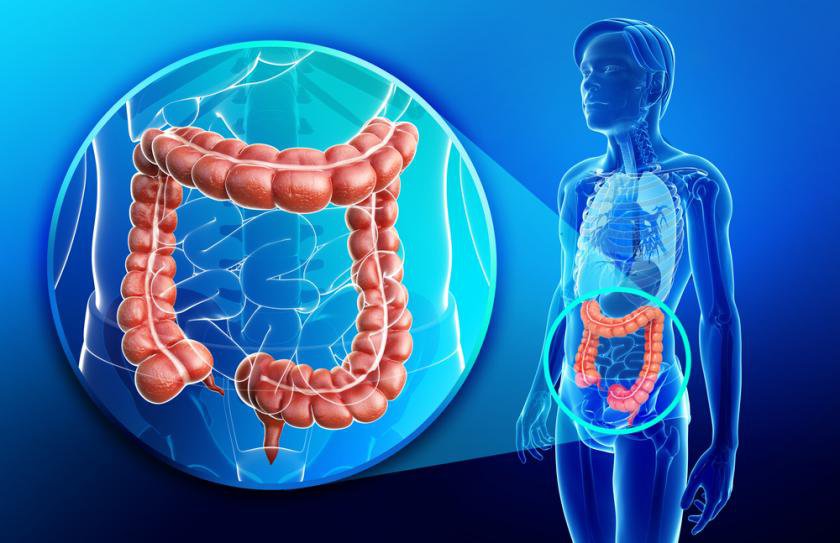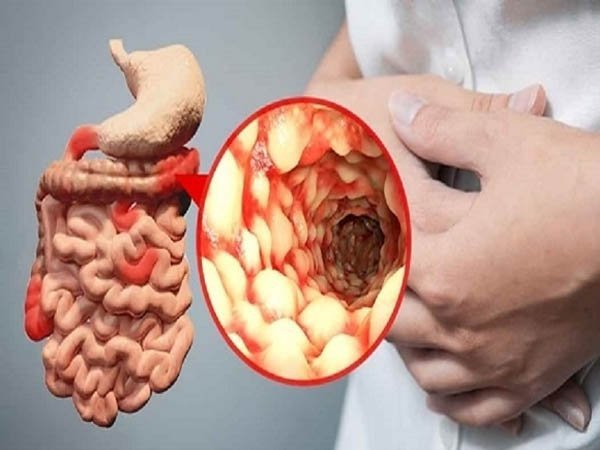Screening for colorectal cancer by narrowband endoscopic NBI
The article was professionally consulted with Master, Doctor Vu Van Quan - Gastroenterologist - Department of General Surgery & Anesthesia - Vinmec Hai Phong International General Hospital.
Colorectal cancer is the second most common cancer in the world after lung cancer. In the early stages, the disease has no special symptoms, making it easy for patients to be subjective, when the disease is detected, the condition has rapidly decreased. Therefore, when there are abnormal signs in the gastrointestinal tract such as abdominal pain, prolonged diarrhea, bloody stools, it is recommended to go to the doctor for screening for cancer prevention.
1. What is Narrowband Endoscopy (NBI)?
NBI narrow band endoscopic technique was invented by OLYMPUS - Japan and put into use in 1994. This NBI technology allows observing tissues with higher detail by simulation. Tissue staining using lights with a certain range of colors to achieve the best contrast of tissue and mucosa images.
Thereby, it is possible to reproduce in detail the abnormal changes in the structure on the mucosal surface and the vascular network located in the mucosa.
NBI narrow band light has two color bands that are blue (390-445 mm) and green (530-550 mm) which are strongly absorbed by Hemoglobin. With this advantage, endoscopes using NBI technology have the advantage in monitoring and early cancer diagnosis based on the smallest changes of mucosa and tissue structure and blood vessels on
surface.
Endoscopy technique with NBI narrow band light helps to detect polyps early and differentiate benign, malignant polyps, or ulcerative lesions with suspicion of cancer in the colon, helping to be treated promptly. improve the quality of life and life expectancy of patients.
2. Why is it necessary to screen for colorectal cancer by NBI narrowband endoscopy?

Colorectal cancer (CRC) is the second most common cancer after lung cancer. In Vietnam, colorectal cancer is a worrisome cancer ranked 5th in terms of new disease rate and 4th in mortality rate.
In the early stages, colorectal cancer has no special symptoms besides. Some symptoms normally considered normal may occur such as persistent diarrhea, mild abdominal pain, bloody stools, dull abdominal pain, bloating or alternating loose stools and constipation. Some people have systemic symptoms such as weight loss, anorexia, fatigue, abdominal cramps. It is with these vague signs that people are often subjective to this disease. Most patients think it is due to digestive disorders.
Colorectal cancer causes the patient's health to decline rapidly. Although it is only a gastrointestinal disease, this is one of the cancers that has a high genetic inheritance to the next generation. However, patients should not be too concerned because this is a disease with a very good prognosis, if detected early, the chance of cure can be up to 92%.
The best way to prevent colorectal cancer is with regular checkups and colonoscopy. In particular, NBI narrowband endoscopy is considered the most modern method and gives the most accurate results. Therefore, in order to detect colorectal cancer early, patients should go for early screening for the disease, especially for groups of subjects with a family history (with relatives with colon cancer), who have had colitis, or other diseases. IBD .
3. Who needs to be screened for colorectal cancer by NBI narrowband endoscopy?

Age factors such as the elderly (over 50 years old) and some chronic diseases have a higher risk of colorectal cancer. In addition, some subjects need to be screened for colorectal cancer such as:
Some disease factors:
Chronic colitis Anemia due to vitamin B12 deficiency Colon polyps: adenomatous polyps, gastric polyps hyperplasia Partial colorectal resection Lower gastrointestinal bleeding Some genetic factors:
Parents, siblings with colorectal cancer Li- Fraumeni syndrome, Peutz-Jeghers syndrome Multiple polyp syndrome with Familial (FAD) Hereditary non-polyposis colorectal cancer syndrome (Lynch syndrome) Diet:
Have a diet low in fruits and vegetables Have a diet high in salty or smoked foods smoke Regularly eat food that has not been prepared or stored properly Regularly use alcohol, smoke Environmental factors:
Work environment exposed to radiation Working in the rubber or coal industry Resistant Indications for endoscopic screening:
Have cardiovascular diseases: aortic aneurysm, heart failure, new myocardial infarction High blood pressure that is difficult to control Suspicion of perforation of a hollow organ i is in respiratory failure, often short of breath People with uncooperative mental disorder Relative contraindications for hypotension systolic blood pressure < 90 mmHg NBI-sourced endoscopy was invented in Japan in 1994 , applied in a number of hospitals in Vietnam in recent years. This technique is used to detect abnormal changes in the colon, is the best method for colorectal cancer screening, and is routinely applied at Vinmec Hai Phong.

The hospital is equipped with the Olympus CLV 190 endoscope welding system with two gastroscopes HQ190 and H190, two colonoscopes HQ190 and automatic endoscope washing machine of Olympus and RO water purification system. The most modern flexible endoscopic system today of Olympus - Japan. Narrow Banding Imaging (NBI) has made a breakthrough in the screening and diagnosis of cancers of the gastrointestinal tract (esophagus, stomach, duodenum, colon, rectum). in the early and very early stages. NBI endoscopic images have high resolution and contrast, so it is easy to detect small changes in color, morphology of cancerous and precancerous lesions that are difficult to detect with conventional endoscopy. Ensure sterility of the endoscope, absolutely safe for the patient.
Vinmec Hai Phong Hospital enjoy outstanding benefits including:
Short hospital stay, minimizing the cost of stay, reducing the risk of infection hospital. With cases of lithotripsy, inguinal hernia, customers can always go to work after 1 day of discharge from the hospital. Limit the use of antibiotics, reduce the risk of side effects, save costs, patients do not have to worry, fear when administering antibiotics and follow up after taking the drug. Recovery rate reached 90%, re-hospitalization 0%, postoperative infection 0%. The Early Post-Surgery Care Program provides comprehensive care to patients before, during and after surgery, helping to reduce hospital stay, improve treatment quality and reduce costs; reduce the rate of complications. ERAS has been shown to shorten the average length of stay from 8-10 days to 3-4 days. Insurance: Vinmec signed with many large private insurance partners. When customers are hospitalized, they are guaranteed and compensated at the hospital. Save a lot of customer's time and effort. Other advantages : Modern equipment; Service quality according to international standards; Highly qualified doctor; Patients do not need relatives to take care of them because they are cared for by a dedicated and thoughtful nursing doctor...
Để đặt lịch khám tại viện, Quý khách vui lòng bấm số HOTLINE hoặc đặt lịch trực tiếp TẠI ĐÂY. Tải và đặt lịch khám tự động trên ứng dụng MyVinmec để quản lý, theo dõi lịch và đặt hẹn mọi lúc mọi nơi ngay trên ứng dụng.





